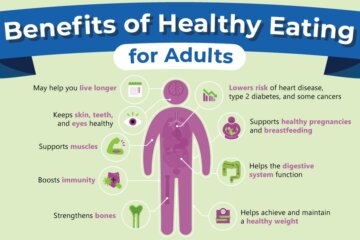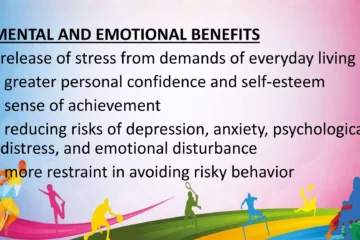Is Health Possible Without Wellness? Find Out the Truth
Health and wellness often seem like the same thing, but they are different. Health usually refers to the state of your body. It means being free from illness. Wellness, on the other hand, is more than just physical health. It includes your mental and emotional well-being.
Imagine feeling physically fine but mentally stressed. You might be healthy, but are you truly well? This post will explore the link between health and wellness. Understanding this connection can help you lead a balanced life. Let’s dive deeper into how these two concepts interact.

Credit: www.flmedcare.com
Health Vs. Wellness
Health and wellness often get used interchangeably. Yet, they are different concepts. Understanding the distinction helps in achieving a balanced life. Let’s delve into the key differences between health and wellness.
Definitions
Health refers to a state of being free from illness. It includes physical, mental, and social well-being. Medical professionals often measure health through medical tests.
Wellness is a broader concept. It includes the active pursuit of activities, choices, and lifestyles. These contribute to a state of holistic health. Wellness is about more than just the absence of disease. It aims for overall well-being.
Key Differences
The key difference lies in their scope. Health focuses on the absence of illness. Wellness emphasizes overall balance. It includes physical, emotional, and mental health.
Health can be a static state. Wellness is dynamic and ongoing. It requires active participation and conscious choices.
Health is often assessed through medical tests and diagnoses. Wellness is more subjective. It involves personal satisfaction and quality of life.
Health can be influenced by genetics and external factors. Wellness is more within your control. It involves daily choices and habits.
In essence, while health and wellness overlap, they are not the same. Focusing on both is crucial for a fulfilling life.
Physical Health
Physical health is the cornerstone of overall well-being. It involves taking care of your body to prevent illness and maintain a high quality of life. Good physical health means your body works well. It allows you to perform daily activities without feeling overly tired.
Components
Several components contribute to physical health. These include regular exercise, a balanced diet, and adequate sleep. Exercise helps keep your muscles and bones strong. A balanced diet provides the nutrients your body needs. Adequate sleep allows your body to rest and recover.
Other important components are hydration and hygiene. Drinking enough water keeps your body hydrated. Good hygiene practices help prevent infections and illnesses. Each component plays a vital role in maintaining physical health.
Indicators
Indicators of good physical health include healthy weight, clear skin, and strong immunity. A healthy weight reduces the risk of diseases like diabetes and heart problems. Clear skin often indicates good internal health. Strong immunity helps your body fight off illnesses.
Other indicators are regular bowel movements and good energy levels. Regular bowel movements show a healthy digestive system. Good energy levels mean you can perform tasks without getting too tired. Tracking these indicators can help you maintain your physical health.
Mental Wellness
Mental wellness is a key part of overall health. It affects how we think, feel, and act. Good mental health helps us handle stress, relate to others, and make choices. Without mental wellness, our quality of life can suffer.
Importance
Mental wellness is crucial for daily life. It supports our ability to function and enjoy life. Mental health affects our relationships, work, and physical health. Without it, even routine tasks can become challenging. Mental wellness helps us cope with the ups and downs of life.
Impact On Health
Mental wellness affects physical health. Poor mental health can lead to chronic diseases. Stress, anxiety, and depression can cause heart disease and other issues. Mental wellness promotes better health and well-being. It reduces the risk of illness and improves quality of life.

Credit: rpbmedical.com
Emotional Well-being
Emotional well-being is a crucial aspect of our overall health. It affects how we think, feel, and handle stress. Emotional well-being includes recognizing our emotions and managing them effectively. It’s about staying positive, even in tough times. Let’s explore its role in health and ways to improve it.
Role In Health
Emotional well-being plays a significant role in our health. People with good emotional health are more resilient. They can handle life’s challenges better. They also experience fewer physical health issues. Stress and anxiety can lead to problems like heart disease and high blood pressure.
Emotional well-being also boosts our immune system. When we feel happy and calm, our body functions better. This reduces the risk of illnesses. Emotional health improves our relationships too. It helps us connect with others and build strong social bonds.
Ways To Improve
Improving emotional well-being involves simple daily practices. Here are some effective ways:
- Practice mindfulness: Spend a few minutes each day focusing on the present moment.
- Stay active: Regular exercise can improve your mood and reduce stress.
- Maintain social connections: Spend time with friends and family. Talk about your feelings.
- Get enough sleep: Aim for 7-8 hours of sleep each night. A well-rested mind is a healthy mind.
- Eat a balanced diet: Foods rich in vitamins and minerals support brain health.
- Seek professional help: If you’re struggling with your emotions, consider talking to a therapist.
Here’s a simple table to summarize these tips:
| Tip | Benefit |
|---|---|
| Practice mindfulness | Reduces stress |
| Stay active | Boosts mood |
| Maintain social connections | Improves relationships |
| Get enough sleep | Enhances mental clarity |
| Eat a balanced diet | Supports brain health |
| Seek professional help | Provides guidance |
Social Wellness
Social wellness plays a crucial role in overall health. It involves building positive relationships, participating in community activities, and creating a sense of belonging. Let’s explore two key aspects of social wellness: relationships and community involvement.
Relationships
Healthy relationships contribute to mental and emotional well-being. They provide support, reduce stress, and promote happiness. Building strong connections with family, friends, and colleagues is vital.
- Open communication: Express your feelings and listen actively.
- Mutual respect: Value each other’s opinions and boundaries.
- Trust: Build trust through honesty and reliability.
Good relationships create a support system. This helps during challenging times.
Community Involvement
Being active in the community boosts social wellness. Volunteering, joining clubs, or attending local events fosters a sense of belonging. It also allows you to meet new people and develop new skills.
| Activity | Benefit |
|---|---|
| Volunteering | Gives purpose and connects you with others. |
| Joining clubs | Offers opportunities for social interaction. |
| Attending events | Expands your social network. |
Community involvement enhances social connections. It also improves mental health.

Credit: www.sh-dentist.com
Spiritual Wellness
Spiritual wellness plays a crucial role in overall health. It involves a deep connection with one’s inner self and the universe. This connection fosters peace, purpose, and harmony in life. Understanding its impact is vital for holistic well-being.
Meaning
Spiritual wellness means feeling connected to something greater. It can involve religious beliefs, meditation, or personal values. This connection provides a sense of purpose and meaning in life. It helps individuals navigate through life’s challenges with resilience and hope.
Influence On Health
Spiritual wellness positively influences physical and mental health. It reduces stress and anxiety, leading to better sleep and improved immunity. People with strong spiritual wellness often experience lower blood pressure and healthier heart rates. They find comfort and strength in their beliefs and practices.
Additionally, spiritual wellness promotes emotional stability. It helps individuals cope with grief, loss, and trauma more effectively. It encourages positive thinking and fosters a sense of community and belonging. These factors contribute to overall mental well-being, leading to a healthier, happier life.
Case Studies
Exploring the relationship between health and wellness can be fascinating. Case studies give us a clear picture of how these concepts interact in real life. Below, we dive into some real-life examples that highlight the complexity of achieving health without wellness.
Real-life Examples
Let’s look at two individuals who had health but lacked wellness.
| Case Study | Health | Wellness |
|---|---|---|
| John, a 45-year-old executive | Excellent physical health, regular exercise | High stress, poor work-life balance |
| Mary, a 30-year-old athlete | Peak physical condition, balanced diet | Low mental health, anxiety issues |
Lessons Learned
John’s case teaches us that physical health alone is not enough. His lack of wellness led to chronic stress and burnout. These issues eventually impacted his physical health.
Mary’s case shows that even athletes can struggle with wellness. Despite her peak physical condition, her mental health issues affected her overall well-being.
- Physical health does not guarantee overall wellness.
- Mental and emotional well-being are equally important.
- Ignoring wellness can lead to serious health issues.
These case studies highlight the need for a holistic approach to health. Focusing solely on physical health is not enough. Mental and emotional wellness are crucial for true well-being.
Balancing Health And Wellness
Balancing health and wellness means finding harmony between physical and mental well-being. Both aspects are crucial for a fulfilling life. While health focuses on physical condition, wellness includes emotional and mental states. Together, they create a balanced, happy life. This section explores strategies and long-term benefits of balancing health and wellness.
Strategies
Start with small, manageable changes. Prioritize a balanced diet and regular exercise. Include fruits, vegetables, and whole grains in your meals. Aim for at least 30 minutes of exercise daily. Walking, cycling, or swimming are good options. Consider mindfulness practices like meditation or yoga. These activities help reduce stress and improve mental health. Establish a consistent sleep routine. Quality sleep is vital for overall well-being. Avoid screens an hour before bedtime. Read a book or listen to calming music instead. Stay connected with loved ones. Social support is essential for emotional health. Join a club or community group. Volunteering can also boost your sense of purpose.
Long-term Benefits
Balancing health and wellness offers many long-term benefits. Improved physical health reduces the risk of chronic diseases. Regular exercise strengthens the heart and boosts immunity. Healthy eating habits can lower cholesterol and blood pressure. Mental wellness enhances emotional resilience. It helps you handle stress and adapt to change. Quality sleep improves concentration and memory. It also boosts your mood and energy levels. Strong social connections lead to a happier life. They provide support during tough times. Engaging in meaningful activities adds purpose to life. Volunteering and hobbies can increase life satisfaction. Overall, a balanced approach leads to a healthier, happier life.
Frequently Asked Questions
Can You Be Healthy Without Being Well?
Yes, it is possible to be healthy without being well. Health refers to the physical state. Wellness encompasses mental, emotional, and social well-being. They are interconnected yet distinct.
What Is The Difference Between Health And Wellness?
Health is the physical state of your body. Wellness is a holistic approach, including mental, emotional, and social well-being. Both are essential for a balanced life.
How Does Wellness Impact Overall Health?
Wellness significantly impacts overall health. Poor mental or emotional well-being can lead to physical health issues. Prioritizing wellness helps maintain overall health.
Can Mental Wellness Affect Physical Health?
Absolutely, mental wellness can affect physical health. Stress, anxiety, and depression can lead to physical ailments. Mental wellness is crucial for overall health.
Conclusion
Achieving health without wellness is challenging. Wellness encompasses physical, mental, and emotional balance. True health goes beyond absence of disease. It includes mental clarity and emotional stability. Focusing on holistic wellness promotes overall well-being. Prioritize self-care, exercise, and balanced nutrition.
Mindfulness and stress management are also key. Strive for a healthier, happier life by embracing wellness. Small daily habits make a big difference. Remember, health and wellness go hand in hand. Make wellness a priority for lasting health.

“As the voice behind Radiant Glow Health, we are dedicated to being your ultimate wellness and vitality companion. Our mission is to inspire and guide you on your journey to a healthier and more vibrant life. Join us as we explore holistic health practices and empower you to radiate wellness from within.”



